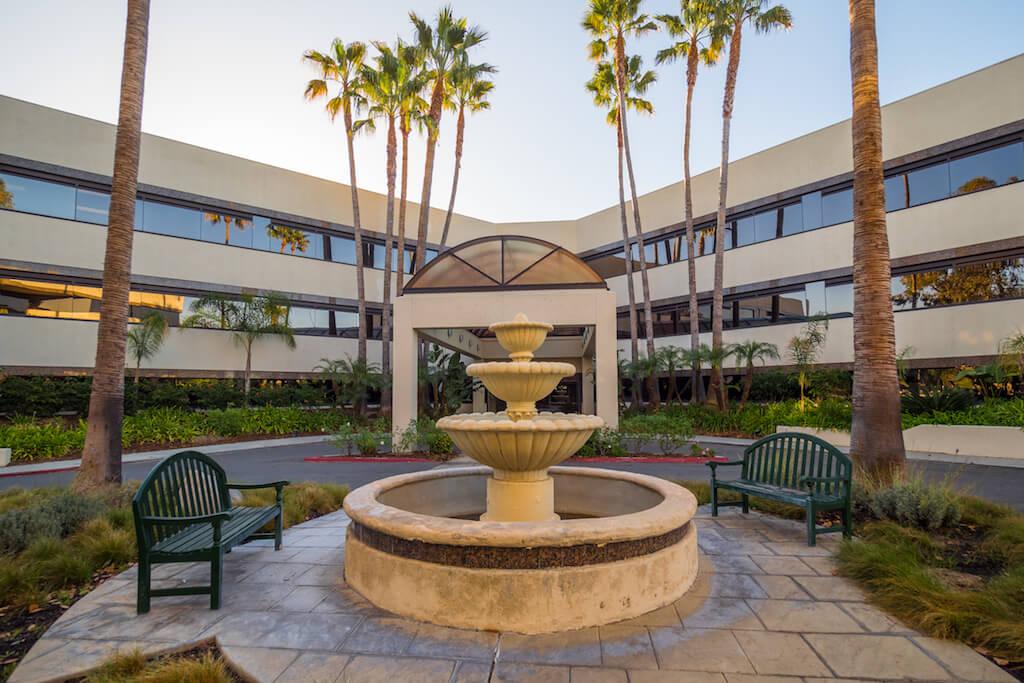
Drug and Alcohol Rehab in Garden Grove, California
In Orange County, California, where Garden Grove is located, mortality rates due to substance misuse have increased in recent years.1 For people struggling with a substance use disorder in Garden Grove, help available nearby. Before choosing a rehab for the treatment of drug and alcohol addiction, you should consider several factors, including the quality of treatment and aftercare planning. Consult your doctor, a mental healthcare professional, or an addiction care specialist; do your research; and read reviews.
Where is Addiction Treatment Located in Garden Grove, California?
Finding a treatment program is the first step in recovery from a substance use disorder. Whether you need treatment for yourself or a loved one in the Garden Grove area, there are lots of options available. In fact, there are 1,300 rehabs throughout California.2 For residents of Garden Grove, there are 295 substance use treatment facilities within 25 miles.2 These treatment centers are equipped to provide varying levels of care.
One of these nearby facilities is Laguna Treatment Center, an American Addiction Centers (AAC) facility that is a licensed chemical dependency recovery hospital, which allows the treatment center to accept more complex cases, including individuals who, in addition to a substance use disorder, have chronic medical and physical health conditions.
What is the Cost of Rehab in Garden Grove, California?
The overall price for substance use treatment varies from patient to patient and from facility to facility. Several factors impact the cost of a treatment program, including:
- The level of care you receive. Around-the-clock, medically intensive residential treatment, for instance, will likely cost more than outpatient program.
- The length of time spent in treatment. As you progress through a treatment program, you may transition to different levels of care, which can better your outcome. Generally, the longer you remain in treatment, the more it costs.
- The amenities offered. Treatment facilities that offer private rooms, chef-cooked meals, fitness centers and classes, and spa-like services such as massage or acupuncture charge more than a treatment center providing the basics.
Perhaps one of the biggest factors impacting the cost to you is whether you’re using insurance to pay. While you may still be responsible for deductibles, co-payments, or co-insurance fees, depending on your plan, using insurance to help cover some or all of the cost of addiction treatment can significantly reduce your out-of-pocket costs.
Does Insurance Cover the Cost of Rehab in Garden Grove, California?
The Affordable Care Act (ACA), passed in 2010, provides expanded access to all forms of healthcare for the insured.3 Prior to its passage, substance use disorder treatment services were not as readily accessible because many health insurance plans didn’t cover it. And the providers that did provide coverage for substance use disorders often imposed high copayments, annual visit limits, and more. These factors prevented some people from seeking the necessary treatment.
The ACA expanded coverage, made substance use disorder and other mental and behavioral health services essential benefits and required providers to cover substance use and other mental health disorders the same way they cover other chronic health conditions. All of this makes it easier for people with substance use or other mental health disorders to seek treatment.4
In Garden Grove, treatment facilities accept a number of different insurance plans, including:2
- Private health insurance, which is accepted by 200 of the 295 facilities in the area.
- Medicaid, taken by 105 of the treatment centers within 25 miles of the city.
- A state-financed health insurance plan other than Medicaid, which is accepted at 73 of the Garden Grove area rehabs.
- Medicare, taken by 47 of the facilities.
- Federal military insurance, which 95 of the substance use treatment centers take.
Laguna Treatment Center, near Garden Grove, accepts many health insurance providers, including Elevance Health (formerly Anthem BCBS in California), Carelon Behavioral Health (formerly Beacon), Aetna, Cigna, Humana, and more. To check your insurance coverage, you can click the link just beneath the map below.
Other Ways to Pay for Rehab in Garden Grove, California
For those without insurance, there are other ways to pay for substance use treatment in Garden Grove, including:
- Payment assistance. In Garden Grove, 60 of the 295 substance use treatment centers offer programs to help low-income, uninsured, or underinsured individuals pay for all or part of their medical bills.
- Sliding fee scale. There are 102 facilities in the area that offer a sliding fee scale, which means that the fee is based on your ability to pay and other factors.
- Financing options. Many facilities will allow you to make monthly payments to cover the cost of treatment as opposed to paying for it in full up front.
- Loans. You could ask a family member or friend for a loan, or there are lenders who specialize in providing funds for substance use treatment.
- Fundraising. Hold a fundraiser or crowd fund.
What Substance Addictions Do Garden Grove Rehabs Treat?
While many Garden Grove rehabs are equipped to deal with most substance use disorders, it’s best to check with the treatment center before enrolling in a program.
Additionally, it is not uncommon for individuals to have co-occurring substance use and mental health disorders. Individuals with a diagnosed substance use disorder may also have anxiety disorders, bipolar disorder, personality disorders, depression, or schizophrenia, among other mental health conditions.5 In these instances, it’s important to find a rehab that uses an integrated approach to address the substance use disorder and other mental health disorder at the same time. In the Garden Grove area, there are 169 facilities providing co-occurring treatment.2 Laguna Treatment Center treats the whole person and provides the highest quality of care for co-occurring conditions.
Types of Addiction Treatment Offered in Garden Grove, California
Some specific types of care within 25 miles of Garden Grove include:2
- Inpatient hospitals. There are 30 near Garden Grove.
- Outpatient programs. These are available at 164 facilities.
- Detox programs. There are 116 facilities offering detoxification services near Garden Grove.
But that’s not all. Substance use treatment centers near Garden Grove provide the full continuum of care including:6-8
- Detox. Often the first step in a more comprehensive treatment plan, medically managed detox allows your body to safely eliminate itself of drugs and alcohol in a medically supervised environment, which allows you to remain as comfortable as possible as your body experiences withdrawal from the substance.
- Residential treatment. Residential treatment, a term sometimes used interchangeably with inpatient treatment, provides you with 24/7 care in a residential setting. Treatment often includes a combination of psychoeducation, individual and group counseling, behavioral therapy, and medication (if necessary).
- Inpatient treatment program. During an inpatient treatment program, you live at the facility for the duration of treatment, which looks identical to residential treatment but typically takes place in a hospital setting.
- Outpatient treatment program. Outpatient programs look similar to inpatient programs in terms of treatment, but you return home or to a sober living environment at the end of each day.
- Aftercare. It’s vital to create a plan after completing any treatment program. Aftercare, also referred to as continuing care may include transitional housing, ongoing therapy and counseling, outpatient programs, mutual-help groups, and more.
To know which level of care is right for you and your needs, you should see your primary care physician, mental healthcare provider, or an addiction care specialist, who can perform a thorough evaluation and help create a treatment plan specific to you.
Outpatient Treatment in Garden Grove, California
As previously mentioned, there are over 100 substance use treatment centers offering outpatient care within 25 miles of Garden Grove. Outpatient programs vary in level of intensity and may include:
- Intensive outpatient program (IOP). Outpatient treatment, which looks very similar to inpatient and residential care, varies in intensity, with some requiring longer treatment sessions throughout the week. IOPs generally require at least 9 hours of treatment per week, typically taking place in three, 3-hour sessions.
- Partial hospitalization program (PHP). PHPs occur on an outpatient basis as well, but they are generally more intense than IOP programs. Time spent in treatment varies but can last 6-8 hours each day most days each week.
- Standard outpatient programs. Standard programs typically require the least amount of hours per week spent in treatment.
For some, an outpatient program may be an entry point into treatment. For others, it may be a step down from a more intense treatment program as they progress through their recovery journey.
How to Find Rehab Centers in Garden Grove, California
Once you have decided to get treatment and know the proper level of care for you, there are questions that you should ask before enrolling in a program, including:
- Does the facility have an up-to-date certification to treat substance use disorder?
- Are the substance use treatment center’s licensing requirements up to date?
- Will the facility be able to treat your specific substance use disorder?
- Do they offer co-occurring disorder treatment?
- Do they offer evidence-based therapies?
- Can they provide a range of treatment options?
- What insurance do they accept?
- Can you find all the amenities you need?
- Are they able to treat specific needs or populations?
Why Choose American Addiction Centers?
When choosing a drug rehab in or near Garden Grove, you need to find a facility catered to your specific needs. As previously mentioned, AAC’s Laguna Treatment Center provides evidence-based addiction treatment, co-occurring treatment for substance use and mental health disorders, and specialized treatment programs.
AAC customizes treatment for every individual, and you can read reviews from past patients. If you or a loved one struggle with substance use, call to speak to an admissions navigator, who can listen to your story, answer your questions, explain your options, verify your insurance, and get you started on your path to recovery.
